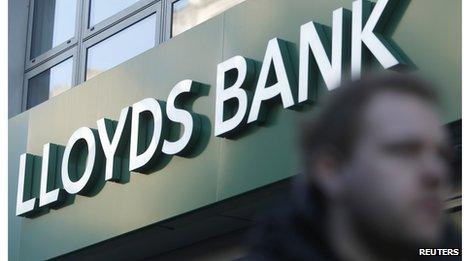Lloyds stake sale: Two cheers for the Treasury
- Published
- comments

You might think - looking at the soar away Royal Mail share price or the escalation in costs of so many IT projects - that the government never gets value for money from privatisations or from investments.
But its spending watchdog, the National Audit Office, thinks it did a good job with the recent £3.2bn sale of an initial stake in Lloyds Bank.
You might think that's odd, in that the NAO says there was a loss on the deal of £230m
But that's all due to the interest costs for the Treasury of borrowing money to pay for the stake.
Those costs are real. But many regard it as a near miracle, given the mess that Lloyds got itself into, that the Treasury secured proceeds that exceeded by a tiny amount the cash price it paid when semi-nationalising the bank in 2008.
There is a sting in the praise, which is that the NAO says the success was partly due to the speed of the privatisation - due, in turn, to the fact that no shares were offered to the general public, with all of them going to investment institutions.
And since the Chancellor wants the next phase of the privatisation - probably in the spring - to include billions of pounds of shares being sold to millions of people, it may be harder for the Treasury to get such a good price next time.